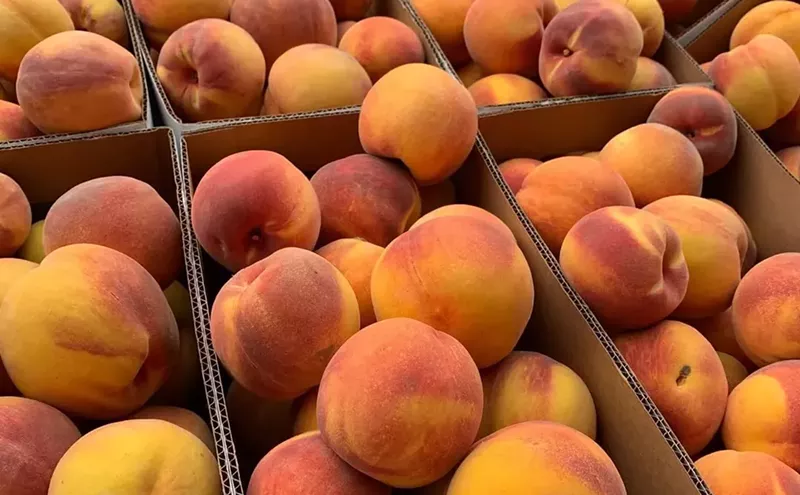Happy New Year, Phoenix! What, you've already broken all your resolutions? Yeah, us too. But we're bouncing back with some inspiration. Whether you've been considering a new hair style or a new kitchen project, we're here to help with Project PHX, our annual "how to" guide. Step into Pane Bianco's kitchen to learn how to pull mozzarella. Or brew beer, crochet dread locks, learn how to build an electric guitar and make a screen print. Five local experts are here to guide you. Today: brewing beer with Dennis Mitchell.
Dennis Mitchell might not work at a commercial brewing facility, but as the only certified master-level beer judge in Arizona (one of 130 in the country) and the vice president of the Arizona Society of Homebrewers, Mitchell knows his beer.
That wasn't always the case. He admits that before he began brewing about five years ago, he really wasn't that into beer. A free class at Gilbert's Brew Your Own Brew changed all that.
"When I started, I really had no idea what a large homebrewing community there was," he says. "I didn't know there'd be so many people willing to help out."
Although he says his first few batches were "really, really horrible," he kept with it, even shadowing other homebrewers to learn their processes. Since then, Mitchell estimates that he's brewed between 200 to 300 gallons of beer in an array of styles, averaging about one brew per month.
His favorite to brew currently is his German-style Kölsch, which he says won a gold medal in the first round of the National Homebrew Competition this year with 36 entries total in the category. For a time, Mitchell's 24 Karat Kölsch was on draft at O.H.S.O. Eatery and NanoBrewery in Phoenix after he won the opportunity to brew with the restaurant's crew.
"You can have a homebrew that's as good, if not better, than commercially brewed beers," Mitchell says.
Personally, he prefers brewing "full-flavored sessionable beers" and going to breweries such as San Tan, Arizona Wilderness, and the newly opened Beer Research Institute when he's looking to try local brews.
"I do drink more IPAs, I think, but I'll drink anything," he says. "I rarely drink beers like Bud Light or Coors, though. It'd have to be a situation where there wasn't any water and I needed a water replacement."
As with any hobby, Mitchell says, it's about finding the aspect you enjoy about it. For him, it's the ability to be creative and experiment with new styles all while taking in the history of brewing.
He says other brewers enjoy getting "really geeky" by replicating mineral compounds in their water to mirror the water of London or Dublin. Others are all about high-tech computer programs and gear, getting close as to a fully automated brewing setup as possible in their homes.
He takes a slightly less precise approach, but he definitely understands why those folks like the science of brewing, too. For his recipes, he uses a program called BeerSmith, which helps him account for factors like absorption and evaporation when calculating the measurements, temperatures, and timing needed for each specific brew. Even with that software, there's still room for error, though.
"Worst-case scenario when brewing your own beer is that you wasted some time and $30 or $40 on ingredients," he says.
Really though, it's as much about the brewing as it is the community for Mitchell, especially now that he's the Arizona Society of Homebrewers' vice president.
"My main motivation is education and getting more people involved," Mitchell says. "As our beer scene grows commercially, I want to make sure the homebrewing scene grows too."
He says the main benefits of joining the group is that you get to learn from more experienced brewers and you get honest, constructive feedback on your brews -- not to mention the opportunity to trade your homemade beers for others' in the group.
Though he says that he can see himself owning a brewpub someday, he's content going to his day job, where he helps keep Mesa Community College accredited, working with ASH, and brewing in his garage or on his back patio when the weather permits.
Mitchell says those looking to start out might find it easier to go with stove-top extract brewing because beginners won't have to worry about buying too much specialized equipment or clean up all the leftover grain at the end.
However, if you want more control over the finished product, he says, and the ability to experiment a little more, the all-grain brewing method is the way to go.
Regardless of which route you take, Mitchell says, cleaning and sanitizing all the equipment that you use is essential, so you don't end up with an infected beer. Once everything is properly sanitized, you're ready to begin making Mitchell's 9.5 percent ABV Duvel-like Belgian strong ale, which he named Gaggle.
Though he jokingly describes the process of brewing in three steps -- doing stuff, waiting around, and cleaning, there's a little more to it than that.
How to Brew Beer
Mill your grain: Dennis Mitchell's Belgian Golden Strong ale calls for 11.5 pounds of German pilsner malt.
Mashing (converting starches in grain to sugars): Heat five gallons of purified water to 165 degree Fahrenheit. Add heated water to mash tun (insulated container) with one teaspoon of gypsum and calcium chloride. Gently add and stir in grain. Let the mash sit for one hour at about 149 degrees Fahrenheit.
Lautering: Slowly drain one gallon of mash liquid (or wort) into a container so the grain particles settle at the bottom of your mash tun and the wort clears. Gently pour the wort back into the mash tun using a diffuser so as not to disturb the grain at the bottom. Drain liquid into a large (at least 10-gallon) metal pot.
Sparging (rinsing remaining sugars from the grain): Add six gallons of hot water (about 170 degrees) to the remaining grain and stir thoroughly. Let the grain and water sit for an additional 10 minutes and repeat the lautering process. Drain liquid into the same metal pot. You should have about nine gallons of wort at this point.
Boiling: Heat the wort to 180 degrees and add the 3.5 pounds of corn sugar. Continue heating and bring wort to a boil. After boiling for 30 minutes, add 2.5 ounces of Czech Saaz pellet hops for bitterness. Do not put a lid on your pot during the boiling process.
Continue boiling for another hour. At 15 minutes left, insert immersion chiller to sanitize and add a quarter teaspoon of both yeast nutrients and Irish moss to the wort. Add the remaining one ounce of Czech Saaz hops at the end of the boil for aroma and flavor (total boil time is 90 minutes).
Chilling: Hook immersion chiller up to a cold water source and begin chilling the wort down to about 75 degrees.
Fermenting (yeast "eat" sugars to make alcohol): Drain the wort into a sanitized container and move the fermenting container to a temperature-controlled location (many homebrewers use a freezer with a temperature-control unit). Pitch an adequate quantity of White Labs WLP570 Belgian Golden Ale yeast into the wort at 64 degrees. Allow the temperature to naturally rise as fermentation progresses. Allow about two to three weeks of fermentation time.
Packaging: Using sanitized equipment, siphon beer into a keg to force carbonate using carbon dioxide in three or four days or into bottles with additional sugar for natural carbonation over two to three weeks.
Aging: Allow the beer to age for one to two months until it's developed flavor to your taste.












